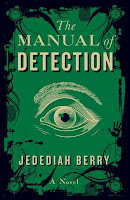


When The News-Gazette approached me about this column, I thought it was a great idea. I’m a librarian, I love books, and I love connecting people and books. My second and subsequent thoughts have been more measured. The world is awash in book reviews and recommendations. The Urbana Free Library, where I work, subscribes to at least 5 regular book review sources for the reading public. We have databases, websites, C-Span, talk radio, late-night television and the daily email from Amazon. Where does an idiosyncratic column on Stuff I Like fit in here?
In the midst of ruminating, I came across Neil Postman’s comparison of two classic dystopian novels: 1984 by George Orwell and Brave New World by Aldous Huxley. According to Postman, Orwell feared those who would deprive us of information. Huxley feared those who would give us so much that we would be reduced to passivity. Orwell feared we would become a captive culture; Huxley that we would become a trivial one.
I continue to ponder this in terms of publishing and reviews. But, in the meantime, let me tell you that I read Postman’s comments in Chris Hedges’ provocative new book, Empire of Illusion: The End of Literacy and the Triumph of Spectacle. Anything about the state of contemporary America is “political,” but this one is well beyond the usual liberal/conservative exchange. Hedges makes some of the most devastating points through simple descriptive reporting. He starts with the World Wrestling Federation and Jerry Springer--easy enough to see the spectacle there (and to feel smugly above it). But by the end, he’s implicated my Facebook page, my last dinner party, and even the team-building exercise at our staff in-service. It’s a great discussion starter.
Empire of Illusion put me in mind of an old favorite from the 90s: Rosanne Daryl Thomas’ The Angel Carver. This is the story of Jack--a shoe repairman by day, a wood carver by night, who was married for a brief time. One Sunday, his wife walked away, never to be seen or heard from again. Jack has spent 40 years quietly hoping for her return. Instead, Lucille, a star-struck Marilyn Monroe wannabe bursts into his shop and into his life. The blurring of illusion and reality that modern technology permits figures prominently in this novel. A quirky, fun read, The Angel Carver is also a cautionary tale: the technology Thomas invented for her story is commonplace today. What she called the Hell Machine, we call Photoshop.
For more oddball fun, try Jedediah Berry’s delightful debut novel, The Manual of Detection. Here the blurring of illusion and reality is of the funhouse variety. Charles Unwin has worked as a clerk on the 14th floor of Central Agency for 20 years, cataloging the cases of agency star, Detective Travis Sivart. He is content with his lowly place in the bureaucracy; he likes the order and sameness of his days. One morning on the way to work, a stranger approaches Charles, tells him he’s been promoted to detective and hands him The Manual of Detection, suggesting it might someday save his life. Charles believes this is all a mistake, but his attempts to convince others of the mistake soon reveal that mischief is loose in the world. It is indeed up to Charles to save civilization as we know it.
And for those who still have time off ahead of them, check out Pascal Mercier’s Night Train to Lisbon. Fifty-seven-year-old Raimond Gregorius, brilliant but dull, has spent his entire adult life teaching classical languages at a Swiss high school. One morning on the way to work he has a chance encounter with a Portuguese woman. Later, in his favorite used book store, he discovers a Portuguese book, self-published in Lisbon 30 years before. By the end of the day, Raimond has walked out of the school, his job, and his life to board the night train to Lisbon. Somewhat reminiscent of Carlos Ruiz Zafon’s Shadow of the Wind, this is the perfect vacation read. With mystery, romance, and political intrigue, the pages keep turning. Every now and then you’ll feel compelled to look up and out (hopefully over water) while you ponder some of the big ones: Am I in the right place? Is this even the right life? Perhaps this one will be it: the vacation from which you do not come back.
[Published in the News-Gazette, August 9, 2009]
No comments:
Post a Comment